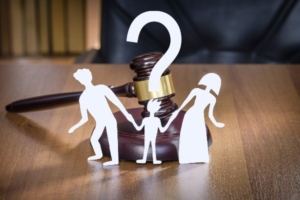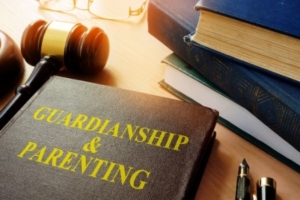
In some cases, a court may appoint two or more co-guardians, each of which plays a crucial role in making decisions on behalf of the ward. Appointing co-guardians can raise significant challenges, however, and anyone considering a Florida co-guardianship should consult with a dedicated planning attorney.
Notice: Please note that Rebeccah Beller is a Florida attorney specializing in guardianship matters in the state of Florida. Our legal team only handles guardianships within Florida and cannot provide assistance for cases outside of this jurisdiction.
The Basics of Florida Guardianship
To best understand what it means to be a co-guardian in Florida, it helps to take a closer look at the guardianship process as well as the responsibilities of a Florida guardian.
A Florida guardianship petition can be filed in one of three situations:
- Guardianship of a minor child
- Guardianship of an adult who suffers from developmental or intellectual disabilities
- Guardianship of an adult who has become incapacitated
In each of these three situations, the ward is not competent to make decisions on their own. However, guardianship petitions for adults who become incapacitated often arise with the least amount of notice and with the most urgency. For example, a petition for guardianship for an incapacitated adult will typically follow a serious accident or the sudden onset of dementia or another disease that significantly impacts an individuals’ ability to understand and comprehend their surroundings.

- Guardianship of the person: This type of guardianship gives a guardian the ability to make important decisions over the ward’s personal and legal interests.
- Guardianship of the property: This type of guardianship gives a guardian the ability to make important decisions regarding the ward’s property. A guardian of the property has a duty to identify and protect the ward’s assets, in addition to providing the court with an annual accounting of the ward’s assets.
Courts do not need to appoint both types of guardianships in every case. It will be up to the judge to determine which type of guardianship, if any, is appropriate. Often, a court will provide both powers to the same person. However, it is also common for the court to appoint two different people. Notably, if one person is designated as the guardian of the person, and another as guardian of the property, they are not considered co-guardians.
What Is a Co-Guardian?
When a court appoints a guardian, the ward loses the freedom to make their own decision. Instead, the guardian or co-guardians will be able to make decisions on the person’s behalf. Of course, filling such a role comes with significant responsibilities. Initially, it may seem like appointing co-guardians makes sense given the importance of the role of a guardian. However, that is not always the case.
Proposed co-guardians should consider whether they will be able to work effectively with other co-guardians. This is because, if a court appoints co-guardians, each co-guardian’s fiduciary duty to the ward remains intact as though they were the sole guardian. Specifically, guardians have a fiduciary duty to the ward, which requires that they act in the best interest of the ward, putting the ward’s interests in front of their own. Thus, a co-guardian is individually responsible for each decision affecting the ward and, in the event of a mistake or oversight, one co-guardian cannot point the finger at the other guardian.
Additionally, courts may be wary of appointing two people to fill the same role, as doing so can lead to disagreement. This is because co-guardians must agree before making a decision or pursuing any course of action regarding the ward. If co-guardians cannot agree, then the court may eventually need to get involved. Thus, before appointing co-guardians, a court will want reassurance that the proposed co-guardians can communicate and work together for the benefit of the ward. Of course, this is also in the best interest of the proposed co-guardians, as they undoubtedly will not want to get involved in litigation.

Appointing co-guardians is necessary for certain situations. However, before designating co-guardians, individuals should consult with an experienced planning attorney to go over their options. Guardianship planning can be avoided in many cases through drafting a power of attorney document, appointing a designated healthcare surrogate, or creating another instrument that allows another to act on the individual’s behalf.
Contact a Dedicated Florida Planning Lawyer Today
If you do not have a comprehensive Florida estate plan, or it has been years since you last updated your estate plan, reach out to the knowledgeable attorney at Beller Law, P.L. At Beller Law, we represent clients in a broad range of estate planning and family law matters. With our help, you can rest assured that all contingencies have been planned for, and that, whatever the future brings, you and your family will be prepared. Taking action to get your affairs in order now can help reduce the chances of familial disputes in the future. To learn more and to schedule a consultation with one of our compassionate Jacksonville family lawyer, call us or contact us through our online form.
